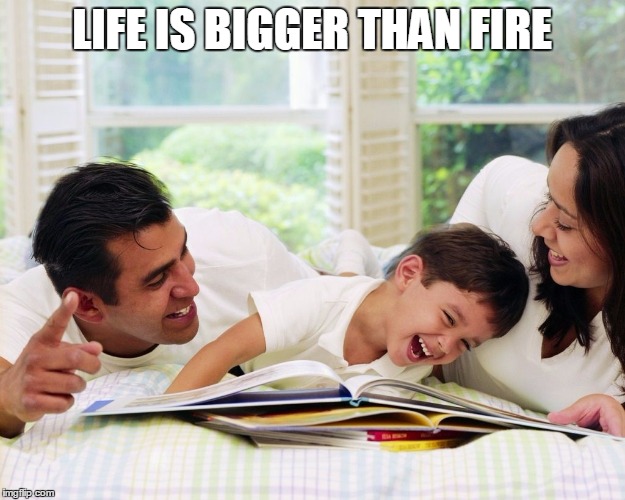Really. And I probably would’ve been posting some bad-ass or irreverent content as a carefree FIRE’d 30’s guy. But life had different plans for me.
Some of you may see this as kinda, sorta, sequel to why FIRE is much harder as a couple. That article seems to have resonated with many readers. Apart from the comments, I got some private e-mails from people who shared their personal experiences confirming what I had written in that article. The mails had a tinge of sadness as they narrated personal experiences of how the new ‘common minimum’ in expenses after their live-in partnership or after marriage and kids has completely reset their sustainable expense figures. As a result, they have moved away from their early retirement dream.
While it is obvious that two incomes in a shared household are better than one, what is far less obvious is what happens if:
- You are the only big believer in frugality and your partner is not (or changes significantly)
- Your partner’s income is a fraction of yours – too small to offset the major expense increase of a growing family
- Your partner’s views on child-rearing make you feel USDA’s cost average for raising a child is either true or even conservative.
- The other biggies of life – housing, cars, insurance and travel/entertainment – are where you and your partner are further apart. And to retain the relationship, you are the one compromising to your partner’s wishes.
This is what I gathered from the mails and also, in talking to well-earning, reasonably frugal friends who can only dream of FIRE. While my case is – thankfully – not identical to those people who shared their life stories with me, I do see some similarities, despite having money rules that generally work in the TFR household. The above issues are more common than you think among partners.
What happened more than 10 years ago?
George Bush Jr. spoke about family values in the White House (maybe to turn the press away from Iraq war mess). I followed his advice and went the family way – got married and had a child soon after. 🙂
 More than a decade ago, as a single, analytical, healthy, non-smoking and vegetarian guy, I was the living epitome of financial prudence. Driving around in a used Honda, living in a tiny one-bedroom apartment far from my workplace to save on rent (even after factoring in commute costs), cooking my own meals and taking leftovers for lunch, having the lowest insurance costs both in health and auto (after making a convincing case to GEICO why I was even less of a risk than a married father of an infant!). I was even not as indulgent about my Latte habit then. My wife-to-be was already living in a place much more expensive than mine, and she was driving a new Toyota (not exactly a luxury car, but a new car, nonetheless). Being her first new car, she was very attached to it and wanted to keep it even after marriage, so we were a 2-car family for many years until our international move for my job forced us both to sell our cars.
More than a decade ago, as a single, analytical, healthy, non-smoking and vegetarian guy, I was the living epitome of financial prudence. Driving around in a used Honda, living in a tiny one-bedroom apartment far from my workplace to save on rent (even after factoring in commute costs), cooking my own meals and taking leftovers for lunch, having the lowest insurance costs both in health and auto (after making a convincing case to GEICO why I was even less of a risk than a married father of an infant!). I was even not as indulgent about my Latte habit then. My wife-to-be was already living in a place much more expensive than mine, and she was driving a new Toyota (not exactly a luxury car, but a new car, nonetheless). Being her first new car, she was very attached to it and wanted to keep it even after marriage, so we were a 2-car family for many years until our international move for my job forced us both to sell our cars.
While we generally agreed on most child-raising expenses (which is why we haven’t spent a fortune so far on raising a child), we don’t agree on everything. Looking back, as a single guy, I know I would have lived happily on $20,000 a year. Even with extravagant indulgences like annual international vacation and a good cable package, it would’ve been a stretch for me to cross $24,000 a year in spending. However, after marriage and a child, our expenses have more than doubled even without any of the extravagant travel expenses (and still eating vegetarian). Spending $50,000 a year versus $20,000-24,000 a year makes one heck of a difference in your FIRE calculations.
If you apply the 4% rule, you ‘only’ need $500,000 in retirement assets to sustain a $20,000-a-year single guy lifestyle. I could’ve cut that down further by living abroad for many months to tide over any short-term market crisis (like in 2008-09), since I am comfortable with many global cultures (Thailand, Mexico, Vietnam, India…here I come!). This way, my $500K assets would have lasted practically forever.
Hello Family, Bye-Bye Crazy FIRE Dream

The picture looks drastically different if you are spending $50K a year and do not have the flexibility to cut down significantly (because many expenses are fixed and spoken-for, once you are married with children).
In my experience, inflation is higher for families than individuals because of two reasons: One, the sheer variety of expenses families have (singles have a narrower spread of categories they spend on) and second, difficulty in reaching consensus on the ‘optimum’ spend in each category (see one example in my earlier post). Also, some of these expenses are unavoidable (like schooling and doctor visits) and they contribute to a family’s spending inflation even if they otherwise don’t eat out much, drive fancy cars or take big vacations. Remember we considered the case where one partner doesn’t bring significantly more income or assets into the family. When you consider all these factors, it would not be unreasonable to project a 3.0-3.5% safe withdrawal rate for a FIRE-aspirant family compared to a 4% safe withdrawal rate for frugal singles who have the adaptability to cut down their expenses quickly and significantly when needed.
So, the family that spends $50K a year should have about $1.5-1.7 million before they can consider FIRE, putting them easily among the world’s top 1%. This is even without college costs for the kids. Your partner will have a say on paying for your kids’ college education and how much – fully, partially or not at all. If you include at least $100K per child, the required assets add up to $1.6-2.0 million in total resources required before a reasonably cost-conscious family (with 1-2 children) can attempt FIRE. Let’s take an average and say, $1.8 million for the sake of calculation.
What the FIRE Math Says…
 Frugal Single: $20K/year, near-total control on spending and ability to make drastic lifestyle adjustments if needed, can retire on $500K in total assets.
Frugal Single: $20K/year, near-total control on spending and ability to make drastic lifestyle adjustments if needed, can retire on $500K in total assets.
Relatively Frugal Family (1-2 children): $50K/year, partial control on spending, risk of higher unexpected expenses, allowance for partnership, and some higher education budgeting, needs $1.8 million in total assets.
Bottom line: A 2.5 times increase in expenses leading to 3.6 times increase in required assets! (Social Security not considered in both cases, since we are talking early retirement)
This math is not easy to overcome. Even relatively high-earning, sensibly frugal singles will find it easier to reach the $500K target than achieving the $1.8 million target with a family, unless their spouse earns comparably to them, brings along some assets to the marriage and is also quite frugal. These three are big ‘ifs’ in real life. Note this doesn’t consider the marriage potentially failing (near 50% odds as American Psychological Association figures), and therefore, this does not cover the expensive aftermath of divorce that, in many cases, can kill the FIRE.
…But What Life Says
In my own case, I know my expenses were so low back then that I could’ve retired 10 years ago rather than chase the 10! dream. Of course, the FIRE math doesn’t consider life with all its twists and turns. Partners and children bring valuable life lessons that a single-track FIRE mindset cannot teach. I have learned to be a lot more accommodating of alternate viewpoints, and have become more patient and tolerant of others. I have learned to look at life through the eyes of my wife and my son. This has allowed me to re-consider my previously fixed notions and judgments. These perspectives have made me a better-rounded person than a single, frugal, FI guy that I was with single-minded focus on FIRE.
Even if I had started a blog 10+ years ago, say 500Krocks.com (I know, terrible name), my posts would have reflected the limited views of a single guy living the FIRE dream and would have possibly sounded more pig-headed than now. It’s not all roses though. I have several frustrating days where I simply wish my partner understood me better. Arising from that frustration is the ability to handle conflicts and patience, which makes you a better person.
On a broader level, there are other points. My career progression was quite fast during those 10 years, which has helped me tackle the higher expenses. Think of it like a 2-horse race. Your savings horse must gallop 25 times more for every unit increase in your annual expense horse, otherwise you are off the FIRE race-track. As a result, I learned to appreciate the challenges most families face in keeping a roof over their heads while feeding multiple mouths and also, keeping the people under the same roof healthy and happy. Only when I realized what it takes to raise a baby did I even think of sponsoring less fortunate kids.
Yes, I could’ve retired over 10 years ago, but happy that I didn’t.
Raman Venkatesh is the founder of Ten Factorial Rocks. Raman is a ‘Gen X’ corporate executive in his mid 40’s. In addition to having a Ph.D. in engineering, he has worked in almost all continents of the world. Ten Factorial Rocks (TFR) was created to chronicle his journey towards retirement while sharing his views on the absurdities and pitfalls along the way. The name was taken from the mathematical function 10! (ten factorial) which is equal to 10 x 9 x 8 x 7 x 6 x 5 x 4 x 3 x 2 x 1 = 3,628,800.


13 comments on “I Could’ve Retired 10 Years Ago”